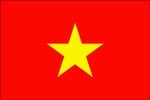
Browse additional economic indicators and data sets, selected by Global Finance editors, to learn more about Taiwan economic outlook, debt to GDP ratio, international trade performance and population trends. Rankings of Taiwan best banks and safest banks are also available.

Browse additional economic indicators and data sets, selected by Global Finance editors, to learn more about Sri Lanka economic outlook, debt to GDP ratio, international trade performance and population trends. Rankings of Sri Lanka best banks and safest banks are also available.

Browse additional economic indicators and data sets, selected by Global Finance editors, to learn more about South Korea economic outlook, debt to GDP ratio, international trade performance and population trends. Rankings of South Korea best banks and safest banks are also available.

Includes historical data for Solomon Islands’ Gross Domestic Product growth, debt-to-GDP ratio and more, as well as information on trade,...












